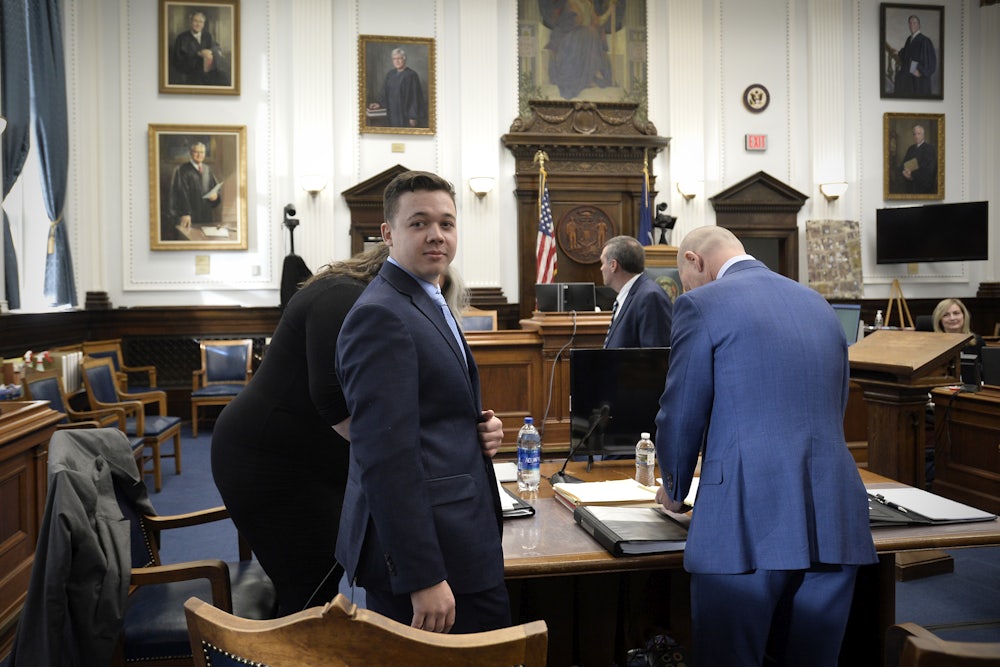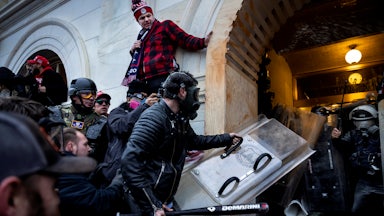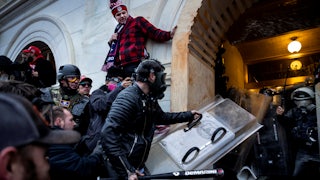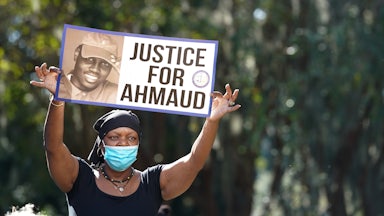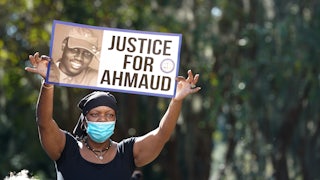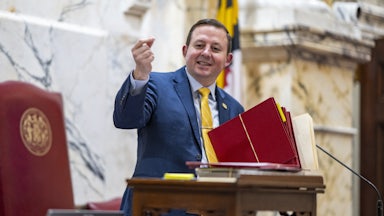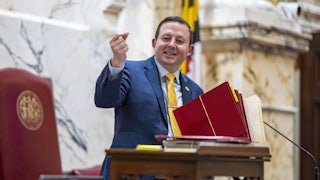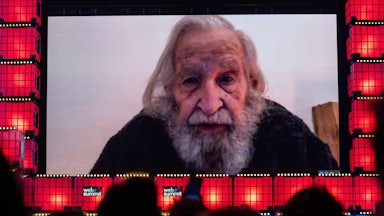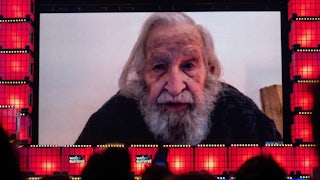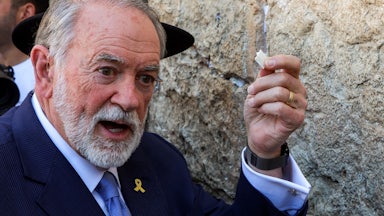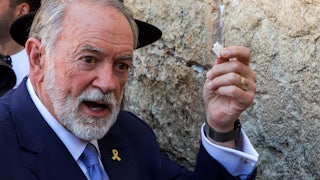In Kyle Rittenhouse’s first interview following being acquitted of all charges after killing two and seriously wounding another during last summer’s unrest in Kenosha, Wisconsin, he insisted that he had been fundamentally and intentionally misunderstood by the media. Speaking to Tucker Carlson last week, Rittenhouse signaled allyship with the Black Lives Matter movement and insisted those alleged to have looted and committed violent acts in Kenosha were “opportunists, taking advantage of the BLM movement.”
It was an unexpected declaration, to say the least, given Rittenhouse’s stature within the conservative media ecosystem. Naturally, it was widely disseminated in both print and broadcast media. Less appreciated was the way his statement fitted neatly into the larger narrative on the right about Rittenhouse. His ongoing media tour—he has met with Donald Trump and Charlie Kirk in recent days—tells you everything you need to know. Rittenhouse is not making sincere claims of solidarity with anti–police brutality activists or racial justice advocates. He’s manufacturing his own quasi-martyrdom, as someone who has been badly mistreated by the cultural forces of the left.
Rittenhouse’s insistence that he was a stealth Black Lives Matter supporter was a carefully constructed statement. As Vox’s Jamil Smith noted, coming from white liberals, such claims often signal solidarity. But “for conservatives or people playing to that audience’s sympathies, doing so is often a move to seek cover from charges of racism. The resurgence of extremist, white supremacist violence, and intimidation during the last several years has been, in their view, an act of self-defense.” Rittenhouse, in his version, just wanted to do what was right. Two people are dead and another was wounded because he was forced into a dangerous situation by people who didn’t.
It all tucks neatly into the right’s larger narrative about Rittenhouse: That he was not only a victim but collateral damage in the culture war. He did the right thing and was mercilessly punished by the woke mob and the Democratic Party; held in a cell he likened to a “a one-star hotel” for petty political reasons. (The January 6 rioters have voiced similarly sudden opinions of the carceral state in recent weeks.) He has also attempted to reframe his travails, arguing that he was caught up in a political firestorm not of his own making. “How polarized it became is absolutely sickening: right or left, people using me for a cause that should never have been used as a cause,” he told Carlson.
“What a sweet boy,” Carlson said of Rittenhouse. It was a claim taken up across the right-wing media ecosystem during his trial: Here was a good kid, a young man who had gone to Kenosha to clean up graffiti and try to keep the peace, being tried for obviously fraudulent reasons. Rittenhouse, meanwhile, insisted that the experience had opened his eyes to “prosecutorial misconduct”—a strange admission from someone who worships law enforcement.
Rittenhouse is nevertheless revealing that what he’s after isn’t justice—rather, he’s seeking to invert the existing argument about racial justice in America. In his version, it’s white conservatives like him—law-and-order-abiding regular folks who just may, from time to time, carry high-powered assault rifles into public spaces and occasionally use them—who are the justice system’s actual victims. People should really be out marching for Kyle Rittenhouse, not victims of police brutality.
Rittenhouse’s choice of friendly interlocutors has been revealing. Carlson is a master of these types of inversions, in which those who advocate against racism are the real racists; those fighting for equal rights really want to privilege certain groups over others; in social justice–obsessed America, it’s white people who should be most afraid. Rittenhouse making the rounds from Carlson to Kirk to Trump speaks volumes about the role he hopes to play in American political culture for the next several years, if not longer: as a regular political and cultural commentator, someone trotted out every time a cop kills an unarmed person of color or a vigilante “keeps the peace” by gunning down a protester.
It would be a shock if Rittenhouse doesn’t get a prime-time speaking slot at the 2024 Republican National Convention or appear by the side of some congressman or other—or perhaps Trump himself—during next year’s midterm elections. In Kirk and Carlson, Rittenhouse has firmly allied himself with two important players in the new right. He is, to a large extent, the future of right-wing media: a guy who literally killed two people but whose actions have been whitewashed to further his portrayal as victim and martyr—even though the only consequence he has faced is the three months he spent in prison awaiting trial.
Rittenhouse may continue to try to complicate his own self-portrait, posing as some sort of sincere believer in multiracial democracy. But the wider narrative on the right holds simply that he was not only justified but right to kill two and wound a third during the unrest in Kenosha—and that he never should have been tried for doing so. The larger case being made both by Rittenhouse and his boosters on the right is that this type of vigilantism is a heroic necessity in today’s America and that others should take similar actions and run similar dodges and weaves from the same playbook. His victory lap is an outrage—and a grim portent of things to come.
